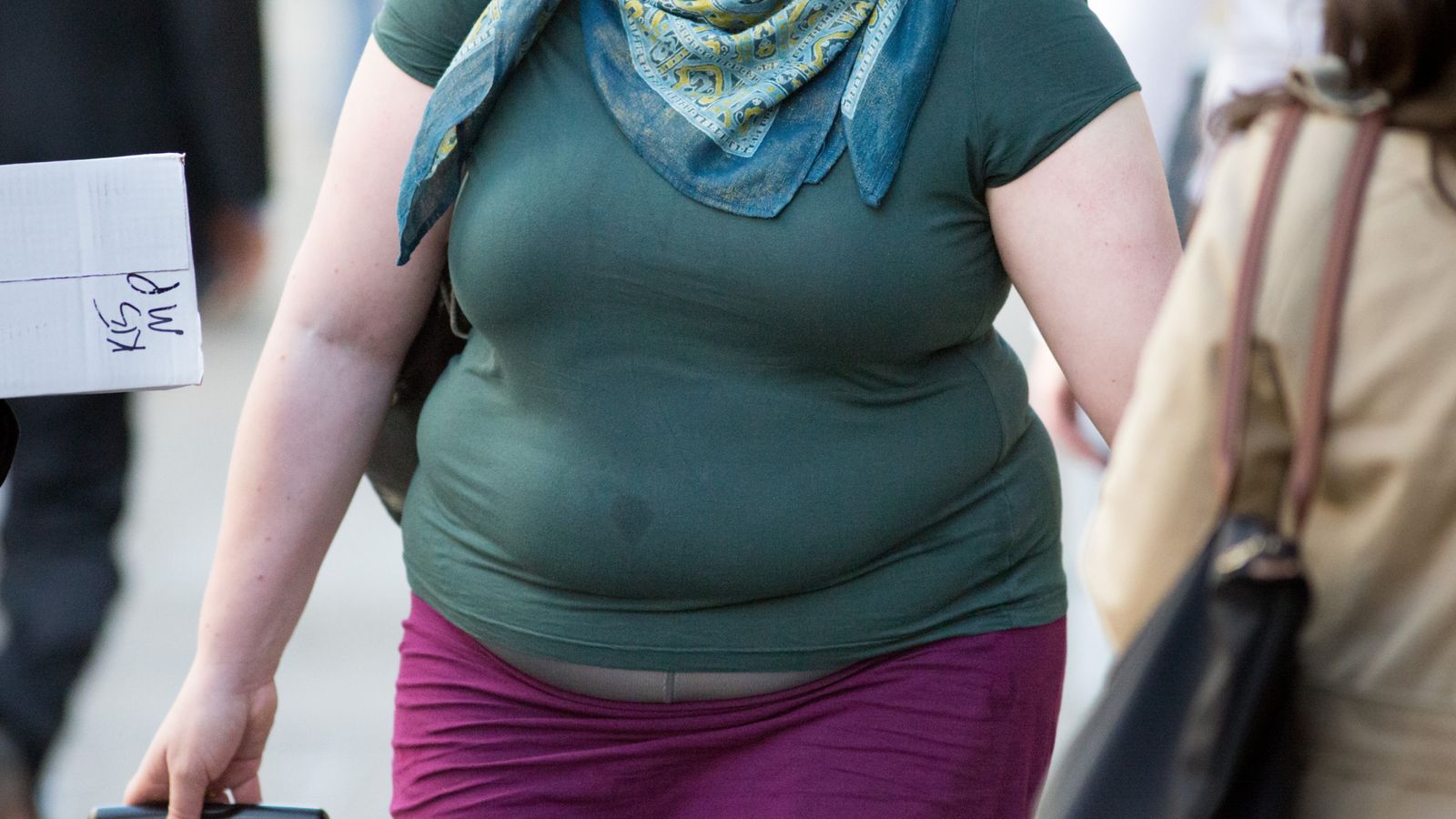A 90-minute procedure to help treat obesity has been deemed as “safe and effective” for the NHS to use in England.
The procedure known as endoscopic sleeve gastroplasty (ESG) reduces the size of the stomach making patients feel fuller sooner.
It works by inserting a flexible tube with a camera and medical instruments into the stomach via a patient’s mouth.
Sections of the stomach wall are then folded and stitched together to reduce the organ’s volume.
After treatment, patients can usually go home on the same day.
ESG, also known as an “accordion procedure”, is reversible and recovery is said to be quicker than conventional surgery.
In draft guidance, the National Institute for Health and Care Excellence (Nice) said ESG should be offered to patients with a BMI of 30 or more.
Alarm over NHS dropout rates as UK producing just two in five doctors joining register
‘Massive disruption’ as Pembrokeshire hospital with crumbling RAAC concrete forced to close half of its wards
Ovarian cancer: Improvement work under way amid concerns treatment in Scotland is a ‘postcode lottery’
It is also recommended for those who have not lost weight with lifestyle changes and who are not suitable for surgery.
Those from South Asian, Chinese, other Asian, Middle Eastern, Black African or African-Caribbean family backgrounds should be offered the treatment if their BMI is 27.5 or above.
Read more:
Obese and overweight people’s brains ‘are different’
UK gripped by ‘sickness explosion costing economy £15bn a year’
According to Nice, obesity costs the NHS an estimated £6.5bn a year and is the second-biggest preventable cause of cancer.
The Health Survey for England 2021 found 25.9% of adults in England are obese, with a further 37.9% overweight.
Chief medical officer at Nice, Professor Jonathan Benger, said: “We know people who live with obesity or who are overweight are more likely to be at risk of other conditions such as type 2 diabetes, hypertension or cardiovascular disease.
“Our committee has found endoscopic sleeve gastroplasty for people living with obesity to be a safe and effective procedure which can reduce the size of the stomach and, therefore, make them feel fuller on a smaller amount of food.
“One of the benefits is that this procedure can be carried out as a day case, and not involve an overnight stay, reducing the time people spend in hospital compared with other surgical options.”
Gastric bands – a form of bariatric surgery which constricts the stomach with an adjustable band – or bypasses, are a couple of the options available to those with BMIs of 40 or more, or in patients with a BMI of over 35 with other conditions such as type-2 diabetes.
Be the first to get Breaking News
Install the Sky News app for free
However, Professor Benger said: “Surgical treatment options are in high demand and not everyone wants, or is fit enough, to undergo an operation like bariatric surgery.
“A non-invasive procedure like endoscopic sleeve gastroplasty could be a welcome new option for some people.”
A consultation on Nice’s guidance is now open and will run until 26 October.
Earlier in September weight-loss jab Wegovy was made available to NHS patients – but only through specialist weight management services and for a maximum of two years.








